Share
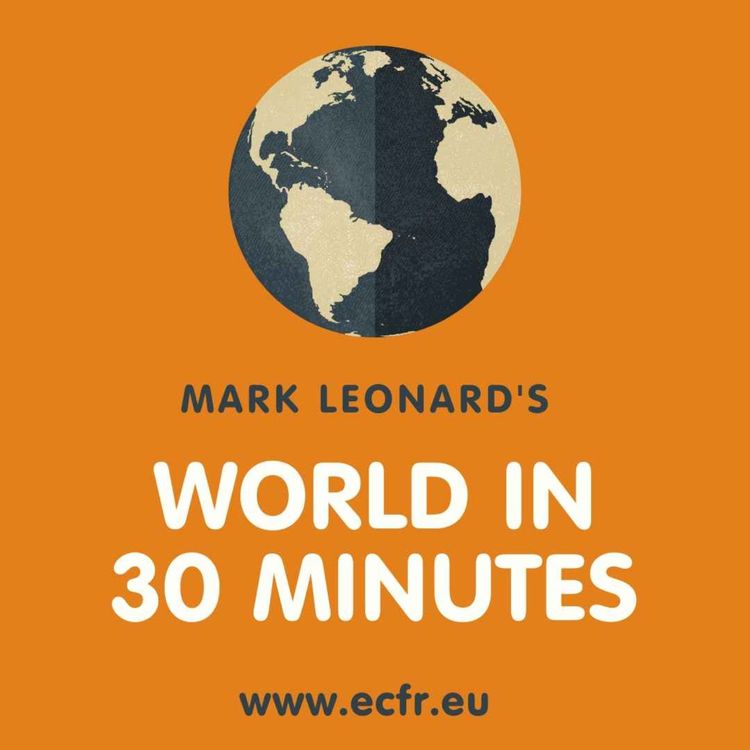
Mark Leonard's World in 30 Minutes
Sudan’s humanitarian crisis
Since the Sudanese civil war began in 2023, millions of people have been displaced, and thousands killed or injured: as European governments focus on crises in the Middle East and Ukraine, the brutal conflict has led to a humanitarian catastrophe. Now, while various actors such as Egypt, Saudi Arabia, and the United States variously mediate in Sudan, Europe remains on the sideline.
This week, Mark Leonard welcomes Will Brown, senior policy fellow at ECFR’s Africa programme; Jonas Horner, ECFR visiting fellow; and Raga Makawi, associate at the Alameda Institute, to discuss the humanitarian and diplomatic dimensions of the crisis in Sudan, and why and how European countries should intervene. Why should Europeans pay more attention to Sudan? What are the implications of this conflict in the region, and for Europe? How does it involve external actors, and what are they pushing for? How likely is a settlement that also addresses the humanitarian situation? And what is the prospect of future peace and order in Sudan?
This episode was recorded on 10 October 2024
Bookshelf:
Sudan’s humanitarian catastrophe demands a surge in European support for its civil society by Jonas Horner
More episodes
View all episodes
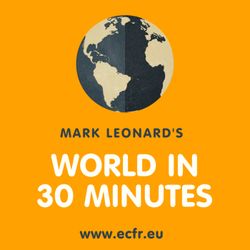
How to defend Ukraine after a ceasefire
32:00|As Russia’s full-scale invasion of Ukraine enters its fifth year, negotiations are finally entering a productive phase. Mark Leonard is joined by Jennifer Kavanagh, senior fellow and director of military analysis at Defense Priorities, and author of the new report, “An Armed Nonalignment Model for Ukraine’s Postwar Security”, to examine Ukraine’s security status and US foreign policy towards it. Mark and Jennifer explore her proposal that Ukraine should position itself as an “armed nonalignment” state, the future of the transatlantic alliance, and America’s National Defense Strategy. Can Ukraine be nonaligned but also “armed to the teeth”? Could it become a porcupine that Russia cannot swallow? What should Europe and Ukraine do if future US foreign policy focuses more on the Indo-Pacific and the western hemisphere? Could Russia feasibly invade Ukraine again? And what happens if it does? Bookshelf An Armed Nonalignment Model for Ukraine’s Postwar Security by Jennifer Kavanagh The bear in the Baltics: Reassessing the Russian threat in Estonia by Jennifer and Jeremy Shapiro Season 4 of Bridgerton on Netflix Susie Wiles, JD Vance, and the “Junkyard Dogs”: The White House Chief of Staff on Trump’s Second Term (Part 1 of 2) by Vanity Fair Susie Wiles Talks Epstein Files, Pete Hegseth’s War Tactics, Retribution, and More (Part 2 of 2) by Vanity Fair This podcast was recorded on 30th January 2026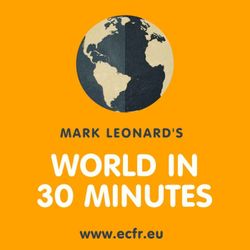
Bretton Woods institutions in a new world order
30:47|This week Mark Leonard is joined by Mark Malloch-Brown. Mark is the former president of the Open Society Foundations, former head of the United Nations Development Programme, formerly UN secretary general Kofi Annan’s chief of staff, and former UN deputy secretary general. From 2007-2009 he joined the British government of prime minister Gordon Brown as minister responsible for Africa and Asia. Together, Mark and Mark discuss how the role and impact of the Bretton Woods institutions, such as the World Bank and IMF, have changed. How can these institutions adapt to the rough-and-tumble world of 21st-century geopolitics—especially considering China’s increased support for the Asian Infrastructure Investment Bank and projections that Asia will hold 50% of global GDP by 205? Is Mark Carney right that there is a rupture in the old order? How did the Bretton Woods institutions underpin the old order? Are the World Bank and IMF problematic and outdated? Is it possible to reinvent these institutions for a new era? Or is it better to work through new, more representative institutions? Bookshelf 1929: Inside the Greatest Crash in History – and How It Shattered a Nation by Andrew Ross Sokin Facing Up to the Future: Navigating Disruption, Building Trust by Patrick Achi, Sri Mulyani Indrawati, Mark Malloch-Brown News and reflections from Mark Malloch-Brown by Mark Malloch-Brown This episode was recorded on February 6th 2026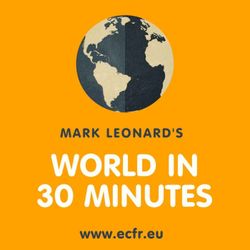
Live from MSC 2026: Transatlantic turning point
36:06|In this special episode of the World in 30 Minutes, Mark Leonard welcomes Editorial Director and Senior Policy Fellow Jeremy Cliffe, Senior Policy Fellow, Ulrike Franke, Distinguished Policy Fellow, Janka Oertel and Senior Policy Fellow, Majda Ruge live from the Munich Security Conference to unpack its biggest moments.Recording from the Bayerischer Hof Hotel in Munich, they reflect on Marco Rubio’s message to Europe, European leaders’ calls for greater autonomy, Zelensky’s intervention on Ukraine, and the shifting tone on China, NATO and tech regulation. Is the transatlantic relationship entering a new phase? Did Europe show unity or fragmentation? And what does the mood in Munich reveal about the future of security in 2026?This podcast was recorded live at the Munich Security Conference 2026.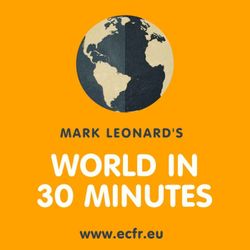
Munich Security Conference Special with Elbridge Colby
44:32|This episode features a live recording of a conversation between ECFR director Mark Leonard and US undersecretary of war for policy, Elbridge Colby, which took place during the Munich Security Conference 2026. Together, they discuss how ideas developed in think-tanks translate into government policy, and how the “America First” approach is shaping US national security priorities. Mark and Elbridge examine NATO’s evolution toward greater European responsibility, the challenge of turning higher defence spending into effective military capability, and the continued importance of nuclear deterrence.They also discuss support for Ukraine, rising concerns about China’s military posture, efforts to counter Iran, and the strategic role of the US–Israel relationship, before looking ahead to the trade-offs and priorities likely to define American strategy in the coming years.This podcast was recorded on February 13th 2026.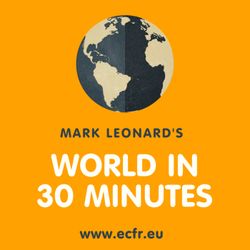
Lessons from the Greenland crisis
25:46|This week, Mark Leonard is joined by Tiago Antunes, Portugal’s former secretary of state for European affairs and senior visiting fellow at ECFR, and Jim O’Brien, former US assistant secretary of state for European and Eurasian affairs, to reflect on the recent transatlantic crisis over Greenland. After meetings in Copenhagen with Danish and Greenlandic leaders, and Tiago’s visit to Nuuk, Mark discusses with him and Jim how tensions escalated, why they were diffused at Davos, and what lessons Europe can draw from the episode. What mood are the Danes in? How do they assess Trump’s motivations? Has the crisis brought Greenlanders closer to Denmark? And how did Denmark go about building European unity to oppose Donald Trump’s moves? Bookshelf Indignity: Life Reimagined by Lea Ypi Everybody Loves Our Dollars by Oliver Bullough This episode was recorded on February 11th 2026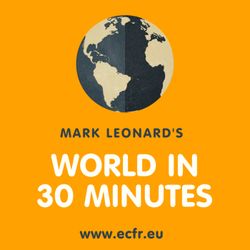
Indignity with Lea Ypi
32:20|Mark Leonard is joined by Lea Ypi, ECFR council member and professor in political theory at the London School of Economics, to discuss her latest book Indignity: A Life Reimagined, which asks how individuals can maintain their dignity in a totalitarian system. Mark and Lea delve into defining moments in global politics, from the 1920s to the post-cold war era. By reflecting on the past, they discuss how polarised modern politics can find a new path. How can the left counter the narratives of the new right? What does a revitalised left look like in Europe and beyond? Are the tragedies of 1920s and 1940s Albania, as experienced by Leman—grandmother of Lea Ypi and the book's protagonist— repeating themselves in Europe today? Do any parallels exist between then and now? And what lessons does this period hold for today? Bookshelf Indignity: A Life Reimagined by Lea Ypi The Overcoat by Nikolai Gogol This podcast was recorded on January 8th 2026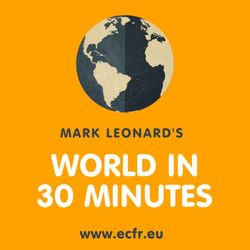
Europe-Africa relations in 2026
34:42|Mark Leonard is joined by Africa experts Nathalie Delapalme, CEO of the Mo Ibrahim Foundation and ECFR council member, Carlos Lopes, honourary professor at the University of Cape Town who has occupied prominent positions in the UN and African Union and Alex Vines, director of ECFR’s Africa programme.Together, they explore how the European policies on critical raw minerals and energy should evolve in relation to Africa’s economic growth, the needs of younger generation and China’s presence in the region. They also outline which topics are key to understanding the EU-AU relationship.How can Europe support Africa’s climate and energy goals without recreating patterns of conditionality or dependency? What impact will the EU’s Carbon Border Adjustment Mechanism have on African economies? With multiple global powers seeking influence in Africa, how should Europe reposition itself as a partner of choice? And how does China’s cooperation with Africa impact Europe?Bookshelf The Hour of the Predator: Encounters with the Autocrats and Tech Billionaires Taking Over the World by Giuliano Da EmpoliAfrican Europeans: An Untold History by Olivette OtéléFareed’s take: World countering Trump with shrewd moves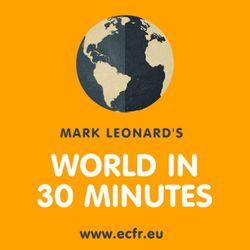
The EU-India mega-deal
18:46|In an emergency podcast episode, Mark Leonard welcomes James Crabtree, ECFR distinguished visiting fellow and former Mumbai bureau chief for the Financial Times, to discuss the long-awaited EU-India trade deal. The agreement, nearly 20 years in the making, was signed in New Delhi by Ursula von der Leyen, Antonio Costa and Narendra Modi, and has been dubbed the “mother of all deals”. It aims to integrate two massive markets—representing a quarter of the global population—slash tariffs, boost services trade and reduce dependencies on China and the US. Mark and James explore India’s strategic pivot amid US tariffs, the potential for deeper defence and tech ties, and Europe’s quest for autonomy in a multipolar world. Is this a game-changer for global trade flows? Can Europe and India forge a true superpower partnership, or will domestic politics and external pressures derail progress? And is this the birth of a new geopolitical axis? This podcast was recorded on January 28, 2026.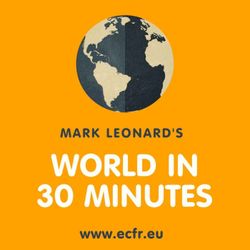
Live from Davos with Alexander Stubb
25:49|In this episode, Mark Leonard sits down with Finnish president, Alexander Stubb, in Davos for a conversation about Donald Trump’s view of Ukraine, Greenland, the world and Europe’s place in it. They explore the clash between advocates of multipolarity and those resisting it, and how this battle is reshaping global power. Together, they reflect on the shifting idea of the West and the challenge of preserving a pragmatic, values based transatlantic relationship. They also explore Finland’s place in this rapidly evolving landscape including the impact of Trump’s sights on Greenland and the war in Ukraine. Bookshelf Peacemaker: U Thant and the Forgotten Quest for a Just World by Thant Myint-U The Triangle of Power: Rebalancing the New World Order by Alex Stubb * please note there were technical issues during the recording